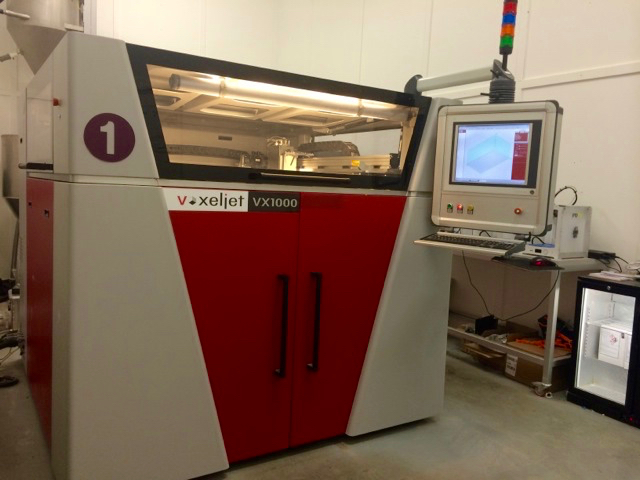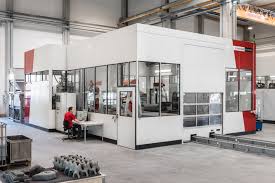
voxeljet, like many industrially focused 3D printer manufacturers, offers an industrial service to its client base.
Recently the company has been keen to promote how it runs two closely linked divisions — voxeljet SYSTEMS and voxeljet SERVICES — for the benefit of its clients and for platform development. The company states that it is the intensive exchange of information between the two business divisions that results in better machines from the Systems division and better AM parts from the Service division, ensuring that voxeljet customers are always the winner.
Indeed, the service centre business model is a key strategy for vendors of large, high capital cost platforms to capture new customers in key vertical sectors. Even with the smallest voxeljet machines, you’re talking six-figure sums. At the top end, it’s closer to seven figures. There are not many OEMs these days that will invest at this level without fully understanding where the tech will fit into the business with a clear and demonstrable ROI.
Then take into account that the sectors that can benefit the most from the voxeljet sand and plastic processes (foundries/automotive/aerospace) are often locked into traditional working processes — physically and mentally — and it becomes clear that relationships need to be built over time. Providing an ongoing, reliable service is the surest way of achieving that. It also offers a way of monetizing large machine capacity while providing benchmark products and training.

The voxeljet process has one key advantage — scale. With one of the biggest industrial 3D printers in the world (4000 x 2000 x 1000mm), the company is able to offer a service to flexibly produce large individual parts/molds or high volumes of small components in one build — or a combination of the two. Add this key advantage to the more general advantages of 3D printing, such as economical complexity and time / cost savings over traditional tooling options; and the voxeljet messaging does, indeed prove compelling for OEMs initially in the form of a service with the potential to convert to sale(s).
With voxeljet’s headquarters in Friedberg, Germany, the company has expanded its service offering globally over recent years with additional service facilities in the UK, the USA, China and India.
Quite recently I was made aware of a notable snippet regarding voxeljet in the UK. You may remember that much was made of voxeljet’s partnership with Propshop in Q4 of 2014, which resulted in voxeljet UK, its service centre based at Pinewood Studios just outside of London. I say partnership, it was actually billed as an acquisition. However, it was not, it seems, a permanent deal. I have heard from a source close to the company that Propshop and voxeljet have now, quietly, gone their separate ways, likely the result of clauses in the deal if it didn’t prove mutually beneficial. As far as I understand it, voxeljet UK still exists and the machines used to operate the UK based service are still based at Pinewood, but the relationship with Propshop has ended.
I visited the Pinewood facility only last year and was greatly impressed. I could see there was cross over and that the voxeljet process was highly suited to some of the outstanding film and studio applications of Propshop. That said, considering the much wider industrial focus of voxeljet I imagine the dedicated but narrow experience of Propshop was the sticking point. If I find out more, I’ll report back.
Via voxeljet

